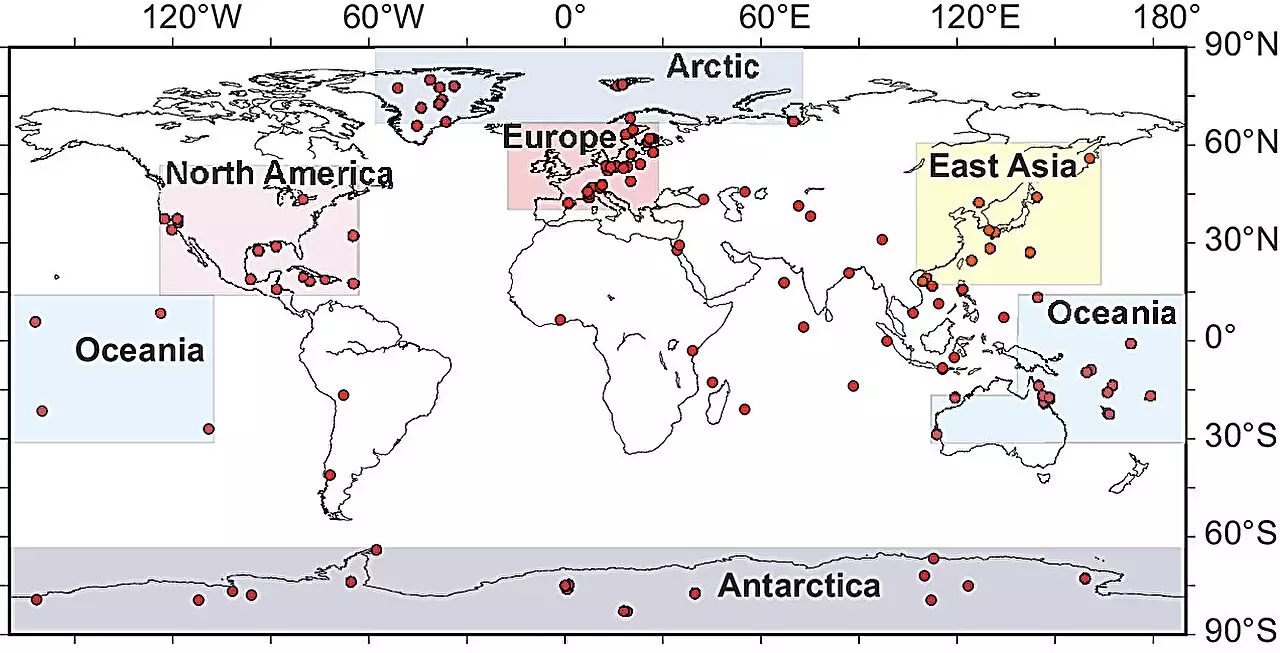The term “Anthropocene” denotes a new geological epoch characterized by significant alterations to Earth’s geology and ecosystems attributable to human activity. Pioneering this concept in 2002, Nobel laureate Paul Crutzen postulated that humanity’s imprint has become profound enough to warrant a distinction from the Holocene, the preceding epoch that commenced approximately 11,700 years ago. Recently, a collaborative research effort involving scientists from prestigious institutions such as the University of Tokyo and Australian National University has revived this discussion. Their rigorous examination identifies the 1950s as a paramount candidate marking the start of the Anthropocene, drawing attention to an era of unprecedented human influence.
The research team evaluated three potential periods to ascertain when this new epoch may have commenced. The first candidate considered was the late 1800s, a pivotal time corresponding with the Industrial Revolution. It was during this period that economies shifted from agrarian to industrial, leading to increased fossil fuel consumption and the proliferation of pollutants. The researchers noted significant environmental indicators, such as widespread lead contamination and variations in stable isotopes across different ecosystems, which began to manifest during this period.
The subsequent candidate, positioned in the early 1900s, marked a period characterized by global ecological shifts. Evidence emerged indicating significant changes in pollen patterns and a spike in black carbon emissions, alongside a notable transition in stable isotope occurrences. This era underscored the gradual intensification of industrial activities and the growing global repercussions of these actions.
Nonetheless, the decisive argument arose for the mid-20th century, a period where human activities yielded observable and quantifiable transformations on a planetary scale. This era is emblematic of the nuclear age, where radioactive isotopes were distributed widely due to nuclear testing, illustrating humanity’s ability to alter Earth’s geological record. Additionally, the proliferation of plastics and organic pollutants became pervasive, reshaping natural habitats and leaving indelible marks on the Earth’s strata.
The researchers emphasized that the multimodal evidence from the 1950s encompassed the most extensive, visible, and irreversible impacts. They documented an era marked not only by environmental degradation but also by the onset of anthropogenic global warming. These changes, they argue, have a permanence that perhaps could take millennia to abate, should human influence cease.
The paper concludes that the mid-century represents a crucial inflection point in Earth’s history, characterized by a lasting geological and ecological legacy. This era gave rise to myriad global challenges, including climate change, biodiversity loss, and pollution, highlighting that choices made during this time will continue to reverberate for generations to come.
Acknowledging the mid-20th century as the commencement of the Anthropocene comes with significant implications. It necessitates a re-evaluation of our relationship with the planet, pushing for urgent discussions on sustainability and conservation. By clearly recognizing the substantial role of human agency in environmental change, societies can better address the consequences of their actions and develop more effective strategies for mitigating climate issues.
Furthermore, the conversation surrounding the Anthropocene opens the door for interdisciplinary collaboration, involving not just scientists but also policymakers, ethicists, and educators. An understanding of our epoch can foster a collective recognition of responsibility, prompting a global dialogue designed for tangible, substantive action.
As this debate extends into broader societal contexts, the transition to an Anthropocene paradigm necessitates immediate engagement with pressing environmental crises. The culmination of research indicating a definitive start to this epoch aids in framing our current environmental challenges within a historical context. As humanity grapples with its role as steward or stewardess of the Earth, the choice remains clear: embrace sustainable practices or risk leaving an irrevocable imprint on our planetary home. The path forward is laden with responsibility, urging collective action towards a balanced co-existence with our world.


Leave a Reply